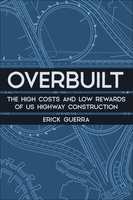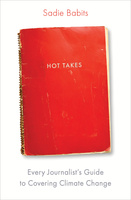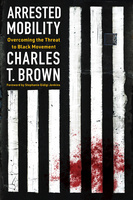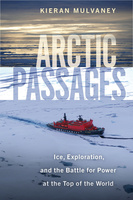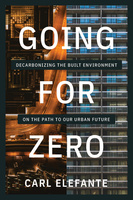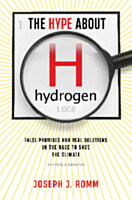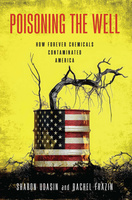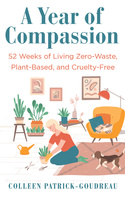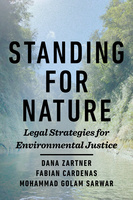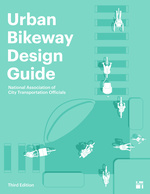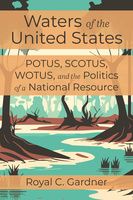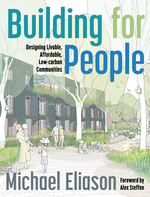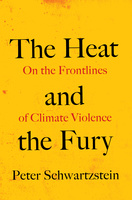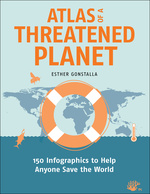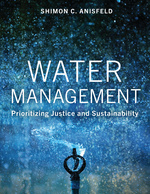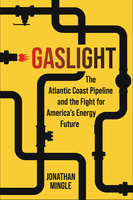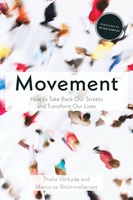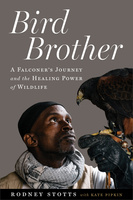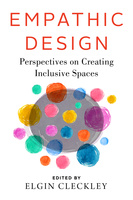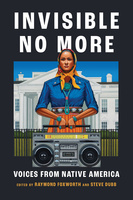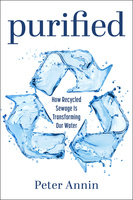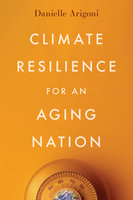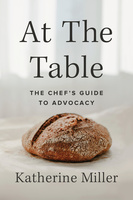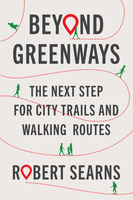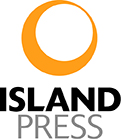
Island Press began with a simple idea: knowledge is power—the power to imagine a better future and find ways for getting us there. Founded in 1984, Island Press’ mission is to provide the best ideas and information to those seeking to understand and protect the environment and create solutions to its complex problems.
Overbuilt
The High Costs and Low Rewards of US Highway Construction
In Overbuilt: The High Costs and Low Rewards of US Highway Construction, transportation planning expert Erick Guerra describes how the US roadway system became overbuilt, how public policy continues to encourage overbuilding, the scale and consequences of overbuilding, and how we can rethink our approach to highway building in the US.
Guerra explains that highway overbuilding stems from the institutions, finance mechanisms, and evaluation metrics developed in the first half of the twentieth century. While more funds are set aside for transit, walking, biking, and beautification, the investment paradigm has not changed. Planners and engineers have not adjusted the tools they use to determine which roads should be built, rebuilt, or widened and why.
Despite having too much roadway, the country is still operating in construction mode, using the same basic approach used to finance and build the interstate system quickly, Guerra states. The interstate was completed more than three decades ago. Overbuilt argues convincingly that it is time to move on.
Hot Takes
Every Journalist's Guide to Covering Climate Change
Climate change affects every aspect of our lives—which means it plays a role in every news story. As a journalist, helping your audience understand these climate connections is part of the job, whether you cover healthcare, economics, politics, sports, or any other beat. We are all climate journalists now.
Yet most of us weren’t taught about human-driven climate change in journalism school or while reporting stories in our newsrooms. You may know the basic science. But how about the major policies that determine global climate action or the growing number of legal climate-related cases? Have you considered what it means to practice journalism that focuses on solutions or how race and climate intersect?
Chances are, you could use some guidance on how to report on this endlessly complex issue. Hot Takes engages the big questions that will determine how climate change is covered, and the stories we tell our audiences and ourselves.
Arrested Mobility
Overcoming the Threat to Black Movement
In Arrested Mobility: Overcoming the Threat to Black Movement, Charles T. Brown, founder and CEO of Equitable Cities, examines why mobility is not afforded in the same way to everyone. He argues that the legacy of structural racism and White supremacy has led to disinvestment and over-policing in Black communities and communities of color, thwarting opportunity, as physical mobility and social mobility are intrinsically linked. This experience for Black people around the world is what Brown refers to as arrested mobility.
Brown examines this condition that society has created through what he calls “The Four Ps”: Polity, Policy, Planning, and Policing and suggests solutions, some of which are already being implemented in the US. Drawing from research, his own experience, and the experience of other Black Americans, Brown shows that change is possible and inspires and guides readers to un-arrest mobility together.
Arctic Passages
Ice, Exploration, and the Battle for Power at the Top of the World
Almost two centuries after British explorer Sir John Franklin and his men died amid paralyzing cold and ice in pursuit of the mythical Northwest Passage, the Arctic is melting at an alarming pace. Instead of working together to reduce greenhouse gas emissions, countries are racing to control newly ice-free waters and the riches in the seabed below. But by choosing self-interest over cooperative action, they may be condemning the world to an uninhabitable future.
Arctic Passages reminds us that while we go about our lives, climate change is unspooling slowly but insidiously, spawning extreme weather events that will be increasingly difficult to ignore. Ultimately, the fate of the Arctic will be decided by the developed world and how it decides to take action—if it’s not too late.
Going for Zero
Decarbonizing the Built Environment on the Path to Our Urban Future
In Going for Zero: Carbon-free Buildings and the Path to Our Urban Future, seasoned architect and former AIA president Carl Elefante addresses how buildings and cities can and must help resolve the looming climate emergency.
For architects and the countless others who work together creating human habitation, the twenty-first century imperatives demand a profound mode shift, from an expansion mindset to one of reintegration and healing.
Elefante explains that revitalizing communities by optimizing existing resources makes social, economic, and environmental sense and directs resources where they are most needed. He offers a decidedly alternative viewpoint, one informed by his career rescuing buildings from demolition and learning from the practices and wisdom embedded in built heritage.
In Going for Zero Elefante offers a message of hope, with the urgency to act now.
The Hype About Hydrogen, Revised Edition
False Promises and Real Solutions in the Race to Save the Climate
For decades, we’ve been promised a high-tech hydrogen economy that never arrives. Yet we continue to pour billions of dollars into hydrogen as part of our low-carbon future. As the window to mitigate climate change narrows, is it time to stop investing in "the fuel of the future?"
In 2003, energy expert Joseph J. Romm wrote The Hype About Hydrogen to explain why hydrogen wasn’t the panacea we were promised—and may never be. In this newly revised and updated edition, Romm builds an even stronger case, explaining the barriers hydrogen faces, from its inefficiency as an energy carrier to the risk of increased global warming from hydrogen leaks. In a series of significant updates, Romm breaks down the latest methods of production, including "green" hydrogen and hydrogen made with nuclear power, and reveals the limitations of suggested applications of hydrogen, including e-fuels and hydrogen cars. The Hype About Hydrogen is essential reading—and a reality check—for anyone who hopes that hydrogen will be a major solution to the climate crisis.
Poisoning the Well
How Forever Chemicals Contaminated America
This is the shocking true-life story of how PFAS—a set of toxic chemicals most people have never heard of—poisoned the entire country. Based on original, shoe-leather reporting in four highly contaminated towns and damning documents from the polluters’ own files, Poisoning the Well traces an ugly history of corporate greed and devastation of human lives.
We learn that PFAS, the ‘forever chemicals’ found in everyday products, from cooking pans to mascara, are coursing through the veins of 97% of Americans. We witness the pain of families who have lost sisters and daughters, cousins and neighbors, after PFAS leached into their drinking water. And we discover evidence that the makers of forever chemicals may have known for decades about the deadly risks of their products.
Heart-wrenching and infuriating, this searing exposé is essential reading for anyone concerned about the unfettered power of industry and the invisible threat it poses to the health of the nation—and to each of us.
A Year of Compassion
52 Weeks of Living Zero-Waste, Plant-Based, and Cruelty-Free
Affectionately known as the Joyful Vegan, Colleen Patrick-Goudreau has been a leading voice in compassionate living for over two decades, guiding countless people to achieve lasting health and purpose. Now, with A Year of Compassion, she shares simple, effective, and impactful actions we can all take to make humankind a little kinder—by protecting animals, supporting the planet, and optimizing our own health.
One week, you might explore eating by color to boost your nutrient intake, while the next, you could store some basic supplies in your car to help an injured animal or stop junk mail in its tracks. Feel free to skip around, choosing your own sustainable adventure. Whether you read A Year of Compassion cover to cover or take it week by week, Colleen is there to encourage, inspire, and motivate, helping you become the change you want to see in the world.
Standing for Nature
Legal Strategies for Environmental Justice
Standing for Nature is an essential resource for environmental lawyers, policy makers, and advocates. It offers a blueprint for creating, implementing, and safeguarding rights of Nature laws. Granting rights to nature has the potential to expand environmental protections, strengthen indigenous rights, promote environmental justice, and alter how humans relate to nature. Despite these promises, rights of Nature laws have met with greater resistance in some countries than in others. This book looks closely at four examples--New Zealand, Colombia, Bangladesh, and the United States--to bring together valuable lessons for proponents of the rights of Nature movement around the world.
The Banks We Deserve
Reclaiming Community Banking for a Just Economy
The number of community banks in the US has been steadily declining for decades, giving way to big banks that have little connection to the communities they claim to serve. In The Banks We Deserve, journalist Oscar Perry Abello argues that community banking has a crucial role to play in addressing urgent social challenges, from creating a more racially just economy to preparing for a changing climate.
Abello tells the stories of new community banks — like Adelphi Bank, the first new Black bank in 20 years; or Walden Mutual Bank, the first mutual bank chartered specifically to finance a more sustainable food system. He hopes these stories inspire others to take some of these same daunting-but-not-impossible steps.
For a community or industry that is being ignored by big banks, the idea of starting up a new bank or credit union rarely figures as an option. In The Banks We Deserve, Abello shows advocates, organizers, and innovators that it can be done, that it is being done, and describes a path to support more community banks and credit unions.
Urban Bikeway Design Guide, Third Edition
“The guide will serve as an essential blueprint for safe, active, multi-modal streets.”
—Gabe Klein, former Chicago Transportation Commissioner
The completely revised and updated third edition of the NACTO Urban Bikeway Design Guide sets a new standard for street design in North America. Developed for cities, by cities, the new guide is more than a permission slip for better street design—it's a prescription for safe, connected, equitable bike networks. It captures lessons learned and emerging practices to set a new bar for the design of city streets. Every transportation professional, from design to maintenance and from field staff to executives, needs a copy for their daily work.
Waters of the United States
POTUS, SCOTUS, WOTUS, and the Politics of a National Resource
In 2023, the Supreme Court made one of its most devastating rulings in environmental history. By narrowing the legal definition of ‘waters of the United States’ (WOTUS), the court opened the floodgates to unregulated pollution. But while tremendously consequential, the decision was also simply the latest in a long series of battles over WOTUS, and which rivers, streams, lakes, ponds, wetlands, and perhaps even farm fields were to be protected by the Clean Water Act of 1972.
Waters of the United States is an unprecedented exploration of this history—and its importance for today’s efforts to conserve a critical natural resource. The book offers the detailed analysis necessary for any lawyer or environmental advocate to understand the nuances of water policy, while spinning a compelling narrative for anyone who cares about the future of the nation’s water.
Building for People
Designing Livable, Affordable, Low-Carbon Communities
In Building for People, architect and ecodistrict planner Michael Eliason makes the case for low-carbon ecodistricts and presents practical tools for developing these residential and mixed-use communities. As cities turn brownfields into green fields and look to maximize public investment in transit and infrastructure, ecodistricts are the answer. Eliason shows that this type of affordable, climate-adaptive living option is possible anywhere.
Full-color photos and illustrations show what is possible in ecodistricts through examples around the world. Looking at small districts like Steingau in Kirchheim unter Teck, to massive urban redevelopment like Vienna’s Sonnwendviertel and Seestadt-Aspern as models, Eliason argues that building regulations and planning processes in the US must change to make these livable neighborhoods possible.
Building for People shows professionals involved in regulating, planning, or designing our communities that high-quality, low-carbon living is within reach.
Science with Impact
How to Engage People, Change Practice, and Influence Policy
Will you please just listen to me? If you are a scientist, or a fan of science, have you ever wondered why your fact-based explanation of ground-breaking scientific research falls flat with family, friends, and the general public? Social science communicator Anne Helen Toomey argues that science today faces a public-relations crisis, and she calls for a whole-scale change in how scientists engage with the world.
This practical, how-to guide will help scientists address public distrust, communicate about uncertainty, and engage with policymakers so that science can make a difference. Science with Impact argues that science can—and should—make a meaningful difference in society, and offers hope and guidance to those of us who wish to take the steps to make it so.
Multisolving
Creating Systems Change in a Fractured World
Multisolving is a simple but powerful idea: using a single investment of time or money to solve many problems simultaneously. In a world that tends to approach complex, deeply intertwined societal issues from siloes, it offers a hopeful vision for holistic change.
This unique resource is for anyone working to fight climate change, reduce hunger, advance social justice, conserve biodiversity, or otherwise make a difference—and who senses all these issues are tied together. It may also be for you: doing the work you know is imperative but that is sometimes overwhelming and often faces opposition from well-heeled interests.
Multisolving can’t promise a list of “fifty simple things to make everything OK.” It does offer strategies to build solidarity between diverse groups, overcome powerful interests, and create lasting progress that benefits all.
Meet Me at the Library
A Place to Foster Social Connection and Promote Democracy
America is facing an epidemic of loneliness and isolation, with troubling effects on our mental and physical health. How do we create spaces for people to come together—to open our minds, understand our differences, and exchange ideas?
Shamichael Hallman argues that the public library may be our best hope for bridging these divides and creating strong, inclusive communities. While public libraries have long been thought of as a place for a select few, increasingly they are playing an essential role in building social cohesion, promoting civic renewal, and advancing the ideals of a healthy democracy. Many are reimagining themselves in new and innovative ways, actively reaching out to the communities they serve.
Meet Me at the Library offers us a revealing look at one of our most important civic institutions and the social and civic impact they must play if we are to heal our divided nation.
The Heat and the Fury
On the Frontlines of Climate Violence
"Schwartzstein’s vignettes of each troubled region are vibrantly narrated as he encounters indignant locals and has run-ins with menacing state security officials attempting to block his investigations into what they invariably consider a ‘sensitive’ subject. It’s a riveting journey through a world running hot." --Publishers Weekly, starred
As a journalist on the climate security beat, Peter Schwartzstein has been chased by kidnappers, detained by police, and told, in no uncertain terms, that he was no longer welcome in certain countries. Yet these personal brushes with violence are simply a hint of the conflict simmering in our warming world.
A new dam that has brought Egypt and Ethiopia to the brink of war over water. ISIS recruiters who exploit drought to pad their ranks. Farmers-turned-pirates who can no longer make a living off the land and instead make it off bloody ransoms.
In The Heat and the Fury, Schwartzstein not only puts readers on the frontlines of these conflicts but gives us the context to make sense of seemingly senseless acts. His incisive analysis of geopolitics, unparalleled on-the-ground reporting, and keen sense of human nature offer the clearest picture to date of the violence that threatens us all.
Atlas of a Threatened Planet
150 Infographics to Help Anyone Save the World
Atlas of a Threatened Planet will spark your curiosity and invite you to see the Earth in a new way. It is written for all who want to understand the interlocking pieces of our home—and fight for the best ideas and strategies to save it.
Threat Multiplier
Climate, Military Leadership, and the Fight for Global Security
Water Management
Prioritizing Justice and Sustainability
This text explores the entire gamut of water issues, from dams to desalination, from prior appropriation to pumped storage, from sanitation to stormwater. Rather than teaching from one disciplinary perspective, it examines water through a variety of lenses: hydrology, climate science, ecology, and engineering, but also law, economics, history, and environmental justice. The result is a comprehensive introduction to one of the most demanding challenges of our time: developing just and sustainable solutions to water management.
Climate Action for Busy People
Killed by a Traffic Engineer
Shattering the Delusion that Science Underlies our Transportation System
Fixing the carnage on our roadways requires a change in mindset and a dramatic transformation of transportation. This goes for traffic engineers in particular because they are still the ones in charge of our streets.
In Killed by a Traffic Engineer, civil engineering professor Wes Marshall shines a spotlight on how little science there is behind the way that our streets are engineered, which leaves safety as an afterthought. While traffic engineers are not trying to cause deliberate harm to anyone, he explains, they are guilty of creating a transportation system whose designs remain largely based on plausible, but unproven, conjecture.
Killed by a Traffic Engineer is ultimately hopeful about what is possible once we shift our thinking and demand streets engineered for the safety of people, both outside and inside of cars. It will make you look at your city and streets—and traffic engineers—in a new light and inspire you to take action.
Bicycle City
Riding the Bike Boom to a Brighter Future
Piatkowski offers pragmatic lessons drawn from the latest research along with interviews, anecdotes, and case studies from around the world. Electric bikes are demonstrating the ability of bikes to replace cars in more places and for more people. Cargo bikes are replacing SUVs for families and delivery trucks for freight. At the same time, mobility startups are providing new ownership models to make these new bikes easier to use and own, ushering in a new era of pedal-powered cities.
Bicycle City is about making cities better with bikes rather than for bikes.
When Driving Is Not an Option
Steering Away from Car Dependency
One third of people living in the United States do not have a driver license. Because the majority of involuntary nondrivers are disabled, lower income, unhoused, formerly incarcerated, undocumented immigrants, kids, young people, and the elderly, they are largely invisible.
In When Driving is Not an Option disability advocate Anna Letitia Zivarts draws from interviews with involuntary nondrivers from around the US and from her own experience, to shine a light on the number of people in the US who cannot drive and outline actions to improve our mobility systems.
When the needs of involuntary nondrivers are viewed as essential to how we design our transportation systems and our communities, not only will we be able to more easily get where we need to go, but the changes will lead to healthier, climate-friendly communities for everyone.
Gaslight
The Atlantic Coast Pipeline and the Fight for America's Energy Future
Their struggle took them all the way to the Supreme Court, but their larger fight was in the court of public opinion. Would the nation swallow the industry’s narrative that gas was “a bridge fuel” to a clean, green future? Or would the public recognize it as a methane bomb, capable of not only wrecking local communities but imperiling the planet? Vivid and suspenseful, Gaslight is essential reading for anyone who wants to understand the urgent stakes of the energy choices we face today.
Movement
How to Take Back Our Streets and Transform Our Lives
Making our communities safer, cleaner, and greener starts with asking these fundamental questions: who do our streets belong to, how do we want to use them, and who gets to decide? To truly transform mobility, we need to look far beyond the technical aspects and put people at the center of urban design. Movement will change the way that you view our streets.
Making Climate Tech Work
Policies that Drive Innovation
Bird Brother
A Falconer's Journey and the Healing Power of Wildlife
Barons
Money, Power, and the Corruption of America's Food Industry
“In this eye-opening debut study, Frerick, an agricultural policy fellow at Yale University, reveals the ill-gained stranglehold that a handful of companies have on America’s food economy…It’s a disquieting critique of private monopolization of public necessities.” - Publishers Weekly, starred
Barons is the story of seven titans of the food industry, their rise to power, and the consequences for workers, eaters, and democracy itself. Readers will meet a secretive German family that took over the global coffee industry in less than a decade, relying on wealth traced back to the Nazis to gobble up countless independent roasters. They will visit the Disneyland of agriculture, where school children ride trams through mechanized warehouses filled with tens of thousands of cows that never see the light of day. And they will learn that in the food business, crime really does pay—especially when you can bribe and then double-cross the president of Brazil. Barons paints a stark portrait of corporate consolidation, but it also shows that a fair, healthy, and prosperous food industry is possible—if we take back power from the barons who have robbed us of it.
Human Transit, Revised Edition
How Clearer Thinking about Public Transit Can Enrich Our Communities and Our Lives
The first edition of Human Transit, published in 2011, has become a classic for professionals, advocates, and interested citizens.
Walker has updated and expanded the book to deepen its explanations. New topics include the problem with specialization; the role of flexible or “demand response” services; how to know when to redesign your network; and responding to tech-industry claims that transit will soon be obsolete. Finally, he has also added a major new section exploring the idea of access to opportunity as a core measure of transit’s success.
No other book explains the basic principles of public transit in such lively and accessible prose, all based on a respect for your right to form your own opinion. Walker’s goal is not to make you share his values, but to give you the tools to clarify and advocate for yours.
Empathic Design
Perspectives on Creating Inclusive Spaces
How do you experience a public space? Do you feel safe? Seen? Represented? The response to these questions may differ based on factors including your race, age, ethnicity, or gender identity. In Empathic Design, designer and architecture professor Elgin Cleckley brings together leaders and visionaries in architecture, urban design, planning, and design activism to explore what it means to design with empathy. Empathic designers work with and in the communities affected. They acknowledge the full history of a place and approach the lived experience and memories of those in the community with respect.
Contributors explore broader conceptual approaches and highlight design projects including the Harriet Tubman Memorial in Newark, which replaced a long-standing statue of Christopher Columbus; and restoration of the Freedom Center in Oklahoma City, first built by civil activist Clara Luper to provide a safe place for gathering and youth education; and The Camp Barker Memorial in Washington, D.C., which commemorates a “contraband camp” used to house former slaves who had been captured by the Union Army.
Empathic Design provides essential approaches and methods from multiple perspectives, meeting the needs of our time and holding space for readers to find themselves.
Invisible No More
Voices from Native America
Edited by Raymond Foxworth of the Henry Luce Foundation and Steve Dubb of The Nonprofit Quarterly, Invisible No More is a groundbreaking collection of stories by Native American leaders, many of them women, who are leading the way through cultural grounding and nation-building in the areas of community, environmental justice, and economic justice. While telling their stories, authors excavate the history and ongoing effects of genocide and colonialism, reminding readers how philanthropic wealth often stems from the theft of Native land and resources, as well as how major national parks such as Yosemite were “conserved” by forcibly expelling Native residents. At the same time, the authors detail ways that readers might imagine the world differently, presenting stories of Native community building that offer benefits for all.
People, Planet, Design
A Practical Guide to Realizing Architecture’s Potential
In People, Planet, Design, architect Corey Squire builds the case, provides the data, and lays out the practical tools for human-centered architecture. This approach integrates beauty and delight with an awareness of every design choice’s impact. Outcome-focused with a deep dive into practical strategies, the book showcases ten building systems that embody design excellence.
Essential reading for architects who want to transform what the profession means, People, Planet, Design pioneers a new vision and sets readers up with clear guidance for implementation.
Purified
How Recycled Sewage Is Transforming Our Water
Purified’s fast-paced narrative cuts through the fearmongering and misinformation to make the case that recycled water is direly needed in the climate-change era. Water cannot be taken for granted anymore—and that includes sewage.
Over the Seawall
Tsunamis, Cyclones, Drought, and the Delusion of Controlling Nature
In March 2011, people in a coastal Japanese city stood atop a seawall watching the approach of the tsunami that would kill them. They believed—naively—that the huge concrete barrier would save them. Instead, they perished, betrayed by the very thing built to protect them.
Academics call it maladaptation; in simple terms, it’s about solutions that backfire. Over the Seawall tells the stories behind these unintended consequences and the fixes that do more harm than good. From seawalls in coastal Japan, to reengineered waters in the Ganges River Delta, to the ribbon of water supporting both farms and cities in parched Arizona, we visit engineering marvels once deemed too smart and too big to fail. After each we better understand how complicated, grandiose schemes fail. Ultimately, we learn that if we are to adapt successfully to climate change, we must recognize that working with nature is not surrender but the only way to assure a secure future.
Climate Resilience for an Aging Nation
Arigoni explores how to integrate age-friendly resilience into community planning and disaster preparedness efforts through new planning approaches. These include an age-friendly process, and a planning framework dedicated to inclusive disaster recovery.
Climate Resilience for an Aging Nation will help professionals and concerned citizens understand how to best plan for both the aging of our population and the climate changes underway to create communities that serve the needs of older adults better, not only during disasters but for all the days in between.
At the Table
The Chef's Guide to Advocacy
In At the Table, Miller presents the essential techniques she developed for the James Beard Foundation’s Chefs Boot Camp for Policy and Change. Readers will learn how to focus their philanthropic efforts; pinpoint their audience and develop their argument; recruit allies and support action; and maybe most importantly, grab people’s attention in a crowded media landscape. You don’t have to be a celebrity chef to change the food system; you just need the will and the tools in this unique guide.
Beyond Greenways
The Next Step for City Trails and Walking Routes
Searns introduces two models—grand loop trails and town walks. Grand loop trails are 20 to 350-mile systems that encircle metro areas. Town walks are shorter—2 to 6-mile routes in cities. He then lays out how to plan, design, and build support for them, drawing inspiration from trails in the US and abroad.
Planners, trail advocates, and community leaders will find the tools here to develop successful and affordable trails. Now is the time to pursue accessible pedestrian routes for this, and future, generations.
Hazardous Seas
A Sociotechnical Framework for Early Tsunami Detection and Warning
Hazardous Seas, edited by disaster preparedness experts Louise K. Comfort and Harkunti P. Rahayu, is an invaluable guide for policy makers and international NGOs looking to save lives from tsunamis and mitigate crippling damage to communities. It also provides a comprehensive overview of tsunami detection and warning for students of engineering, computer science, planning, policy, and economic and environmental analysis.
Inclusive Transportation
A Manifesto for Repairing Divided Communities
Davis aims to disrupt the status quo of the transportation industry. She urges transportation professionals to reflect on past injustices and elevate current practice to do the hard work that results in more than an idea and a catchphrase.
Inclusive Transportation is a call to action and a practical approach to shaping communities based on principles of justice and equity.

